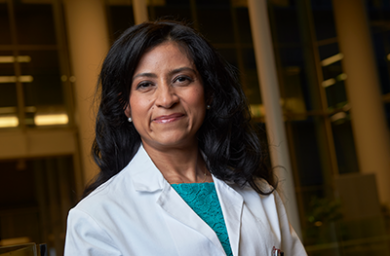As someone who immigrated to the United States as a child, Carmen Guerra, MD, MSCE, knows how challenging it can be for underserved patients — from racial and ethnic minority, low-income, and/or immigrant backgrounds — to access and afford high-quality health care. She became a doctor to heal, but quickly realized that barriers to health care could affect these patients’ ability to access the care she provided and result in health disparities.
See more in Everyday Health
Guerra, who serves multiple roles including vice chair of Diversity and Inclusion of the Department of Medicine at the Perelman School of Medicine and associate director of Diversity and Outreach at the Abramson Cancer Center, has helped develop a patient-navigator program that assists patients with a cancer diagnosis in getting treatment, and is working on ways to bring increased screening opportunities for colon, breast, and lung cancer to West Philadelphia.
One of the starkest examples of health disparities she has worked with is lung cancer, which affects and kills Black patients more than white ones, and at the same time, Black patients are less likely to be take advantage of screenings that could head the disease off before it becomes fatal.
In an in-depth Q&A with Everyday Health as part of a series about cancer disparities, Guerra discusses her personal background and her ongoing mission to make lung and other cancer screenings and treatments equitable, transforming the system to save lives.
According to Guerra, “Programs can address transportation and insurance issues, and regulate tobacco, but trust and faith in the system are harder to instill.”







